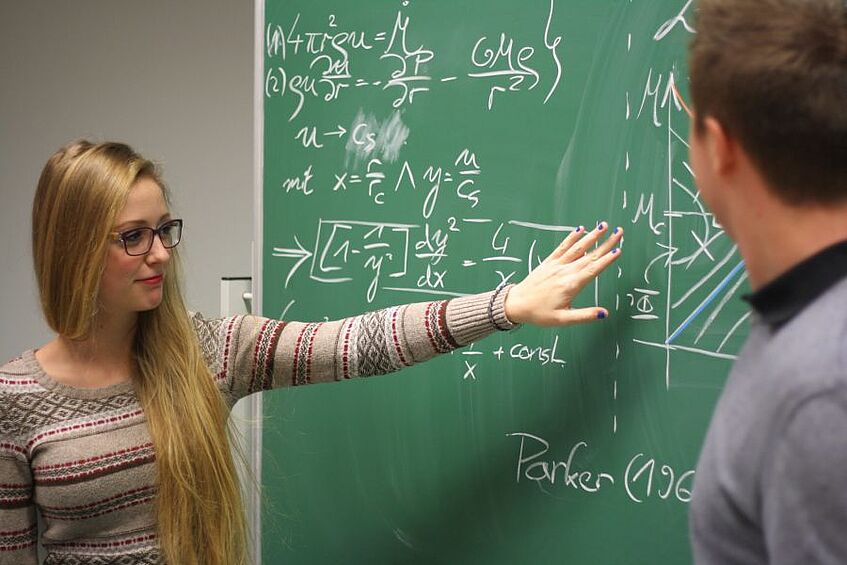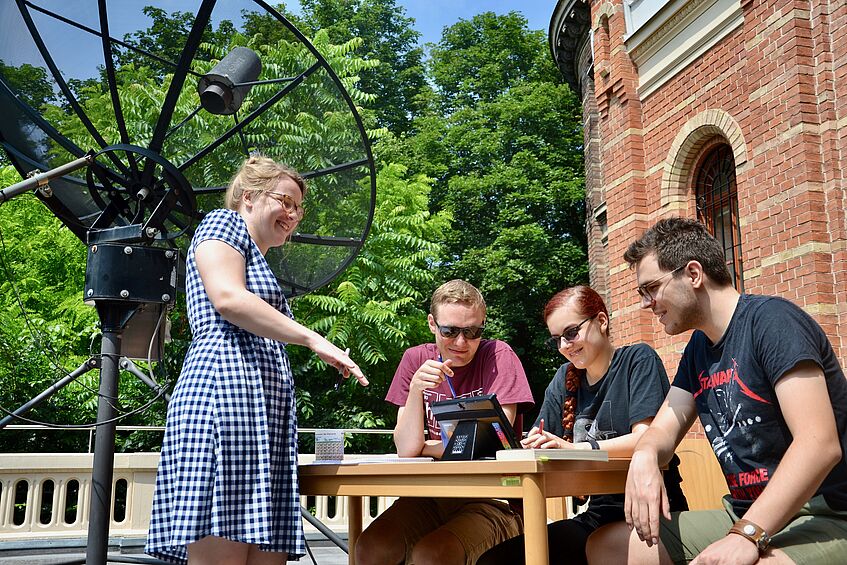Astronomy (Master)

© Universität Wien / Fakultät für Mathematik
Graduates of the master’s programme are able to independently implement research-oriented projects in the field of astronomy and to critically assess and independently use existing specialist literature. They have received training in the use of technically sophisticated measuring and observation instruments as well as modern large-scale astronomical equipment. Furthermore, they have acquired the necessary competences to analyse, model and interpret intricate systems and develop a systematic scientific way of thinking, enabling them to address complex problems.
Master of Science
Degree Programme Code: 066 861
4 semesters / 120 ECTS credits
Language: English
NO entrance examination
Facts & Figures
- Students: n.a.
- Graduates in the last academic year: n.a.
- Number of semesters needed for graduation (median): n.a.
Data updated on: 03.12.2024
Admission Procedure
Information about the admission procedure
Information on Previous Studies:
In any case eligible degree programmes at the University of Vienna:
Getting started

© Sonja Schobesberger
Study Programme
In addition to a research seminar, students have to complete at least 6 modules from a group of compulsory modules. Please note that students have to complete at least one module from each of the following subject areas: Galaxies and Universe, Stars and Planets, Astronomical Instrumentation and Methods. For the group of compulsory modules, students can select courses from the degree programme in Astronomy as well as from related natural science programmes. To successfully complete the master’s programme, students have to write a master’s thesis and pass a master’s examination.
Five concepts
which you will deal with during your studies:
- Galaxy formation
- Extragalactic astronomy
- Stellar structure
- Exoplanets
- Astronomical instrumentation
... and many more.
Overview of the programme structure & topics
Here you find the current offer of courses for this programme to gain better insight into the topics and structure. For more information please click on the respective level.
After Graduation
Graduates can pursue a career in the following occupational fields: Space Research Institute; Austrian Academy of Sciences; Austrian university departments offering a degree programme related to astronomy (Vienna, Graz and Innsbruck); university departments with a mathematical, physical and chemical emphasis; departments of the Austrian Academy of Sciences; international organisations, such as the European Space Agency (ESA) and the European Southern Observatory (ESO). Apart from university teaching, graduates of the master’s programme are qualified to work at public observatories, planetariums, adult education centres, as well as in the area of science journalism and at museums.
Graduates' Perspective on the Degree Programme
Graduates ...
- say that this degree programme receives the grade: 1.8 (good)
- rate the level of difficulty as: 3.6 (high)
→ These results are based on feedback from 16 graduates.
*You can find further assessments of the degree programme from its graduates’ perspective in the graduate survey of the master’s programme in Astronomy (in German).
Graduates ...
- find employment within 3 months after graduation on average.
- earn an average of € 3,042 (women) and € 3,274 (men) gross per month within three years after graduation.
- work full time at a percentage of 81% (women) and 78% (men) within three years after graduation.
*You can find further information on career entry and career paths in the tracking of graduates "Natural Sciences, Mathematics and Statistics".
